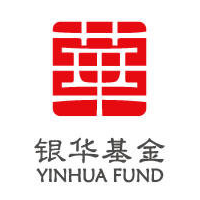This is part two of a three-part report on the Chinese ETF market, co-written with Chen Xin'er.
ETFs' popularity has increased rapidly in mainland China in recent years. There are ETFs tracking major Chinese indexes, like the MSCI China A, CSI 500, Huaxia 300 and the China AMC SH-HK Stock Connect Hang Seng Index ETF. One of the largest issuers, China Asset Management, has issued some 50 ETFs.

Source: Wind Database
On the Shanghai Stock Exchange, the biggest exchange, there are now 109 ETFs - most of which track plain vanilla indexes. The first ETF tracking US treasuries was introduced in March 2013. Today, there are four bond ETFs listed on the SSE.
Commodity ETFs, by contrast, have proved less popular in China than they have in the west. There are only two commodity ETFs on the SSE, both of which track gold. While there are currently 25 ETFs that are focused on currency or FX markets in SSE.
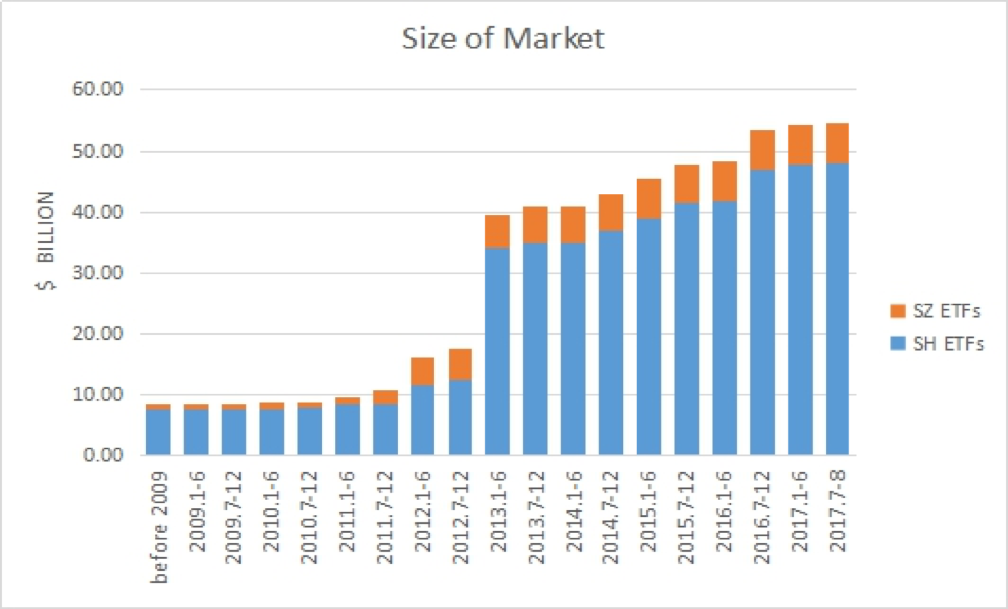
Source: Wind Database
China's other major stock exchange, in Shenzhen, is significantly smaller and has only 52 ETFs. In 2008, the SZSE had only two listed ETFs, which tracked the SZSE 100 Index and the SME Price Index. Today, the market value is over $1billion. With one exception, all the ETFs listed on the SZSE are equity ETFs.
The exception is a bond ETF, called the Mid-Term Government Bond ETF (159926.SZ) which was listed in 2013.
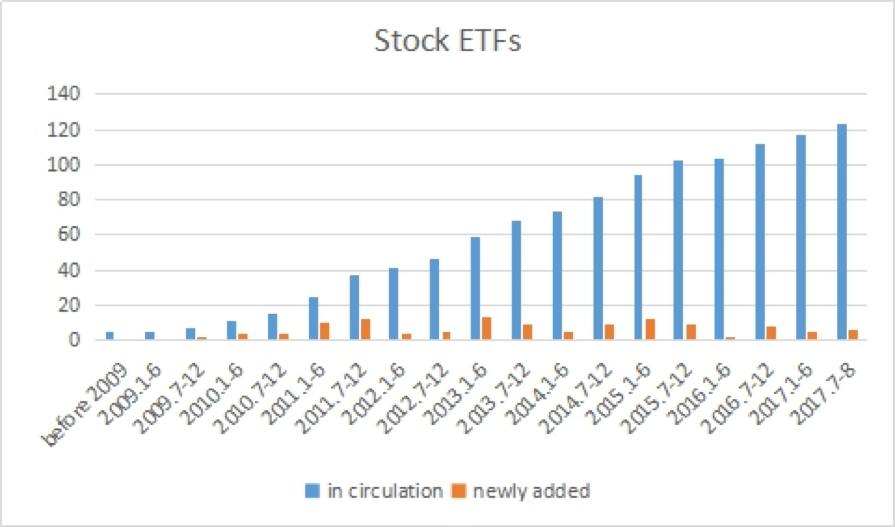
Source: Wind database
The size of both the SSE and SZSE has increased the past nine years. The size of SSE grew tremendously, particularly in 2013.
At the end of 2009, the market size of SSE ETFs was $ 7 billion, much bigger than the market size of SZSE ETFs, which was only $ 921 million. At the end of 2013, the market size of SSE ETFs reached $35 billion with 45 ETFs in circulation while the market size of SZSE ETFs was $5.8 billion with 31 ETFs.
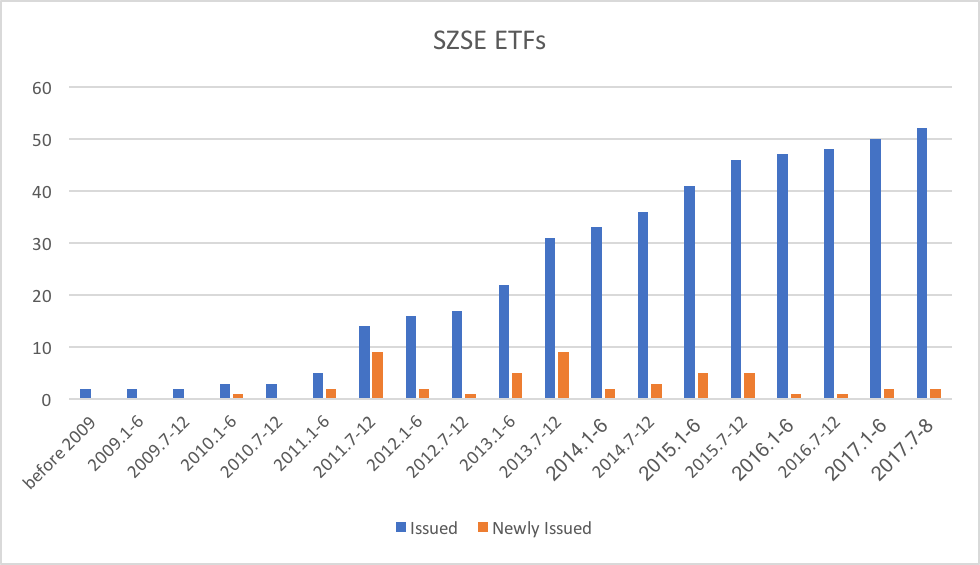
In 2017 (as of 8 August) SSE ETFs reached $ 48 billion market size. 109 ETFs are circulating in the market with focuses range from total market to industry. Among them, the biggest fund is Huabao Tianyi (511990 .SH) issued by Fortune SG Fund Management Co., Ltd. With current market size of $10 billion. The second biggest fund is XD Yinhua Rili (511880 .SH) issued by Yinhua Fund Management Co., Ltd. With current market size of $ 4.5 billion. The third biggest fund is 50 ETF (510050 .SH) issued by China Asset Management Co., Ltd. with $ 4.3 billion in market size. Both Huabao Tianyi (511990. SH) and XD Yinhua Rili (511880. SH) focus on currency while 50 ETF (510050. SH) uses SSE 50 Index as benchmark. It is obvious that the market size of SSE ETFs is much bigger than that of SZSE ETFs. Up to 8 August 2017, the market size of SZSE ETFs is $ 6 billion. The three biggest fund are SZSE 300 ETF (159919 .SZ), ChiNext ETF (159915. SZ) and EFUND SSE 100 ETF (159901 .SZ) with 2.5 billion, 896 million and 554 million dollar in market size respectively.
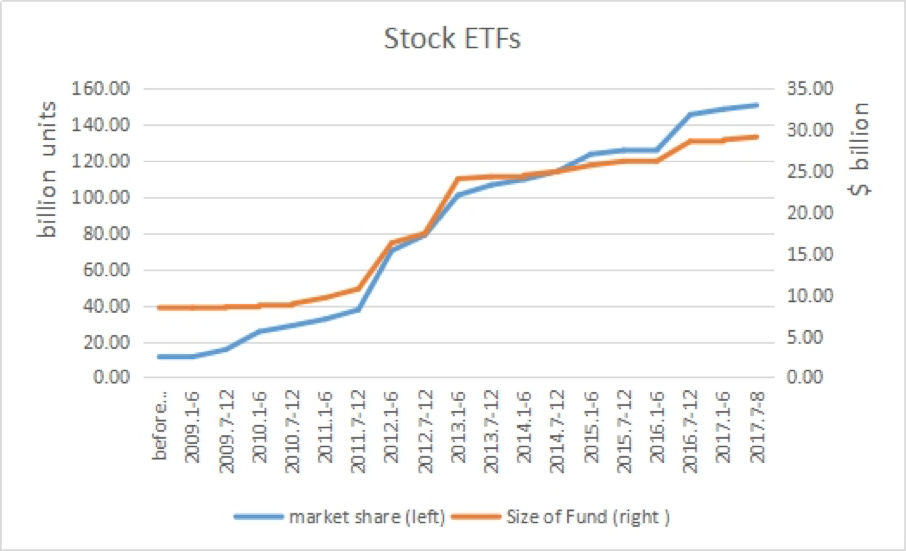
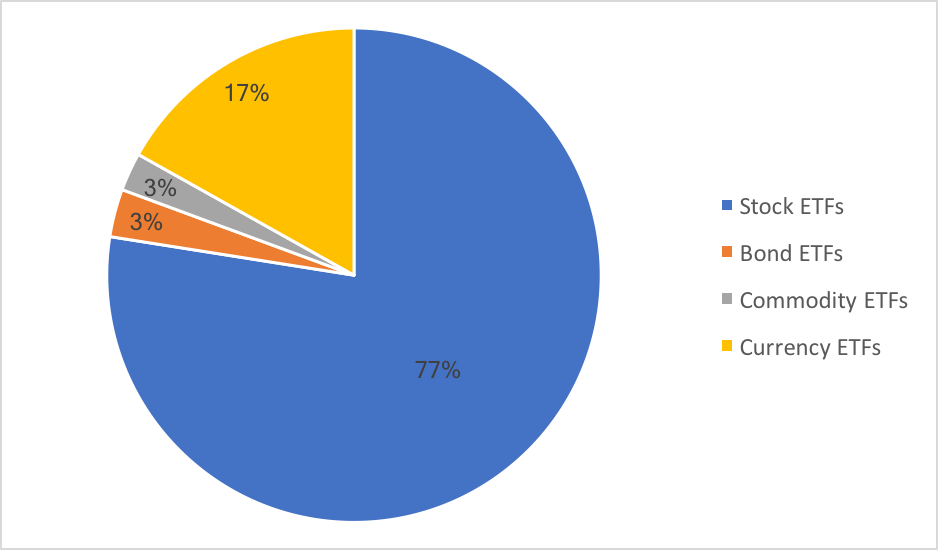
Types of ETFs traded on SSE and SZSE
There are four types of ETFs in circulation; they are stock ETFs, bond ETFs commodity ETFs and Currency ETFs. Up to 8 August 2017, there are 124 stock ETFs, 28 Currency ETFs, 5 bond ETFs and 4 commodity ETFs. 77% of the ETFs in circulation are stock ETFs.
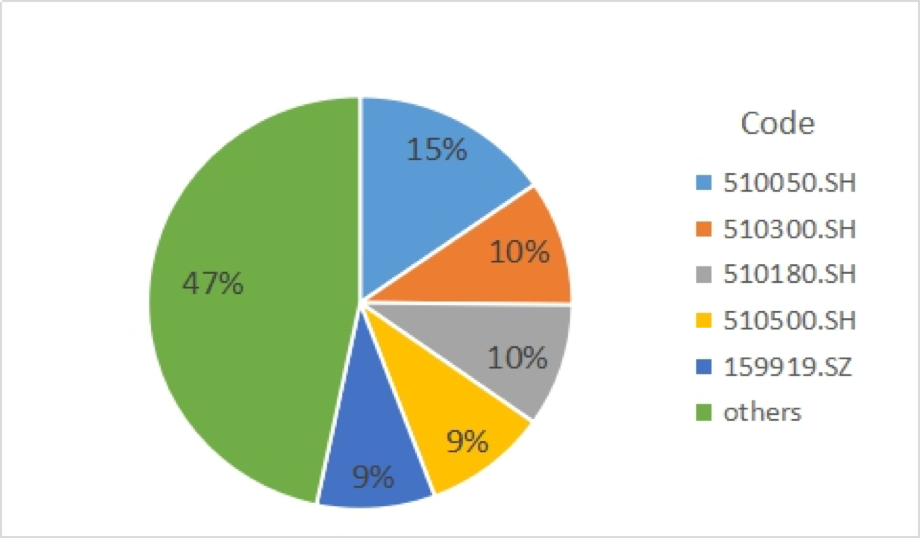
There are 25 Currency ETFs traded on SSE and 3 traded on SZSE. All 4 Commodity ETFs focus on gold, with $ 1.1 billion in market size. Guotai Gold (518800 .SH) and Gold ETF (518880 .SH) are listed in SSE while Efund Gold ETF (159934 .SZ) and Bosera Gold (159937 .SZ) are exchange in SZSE.
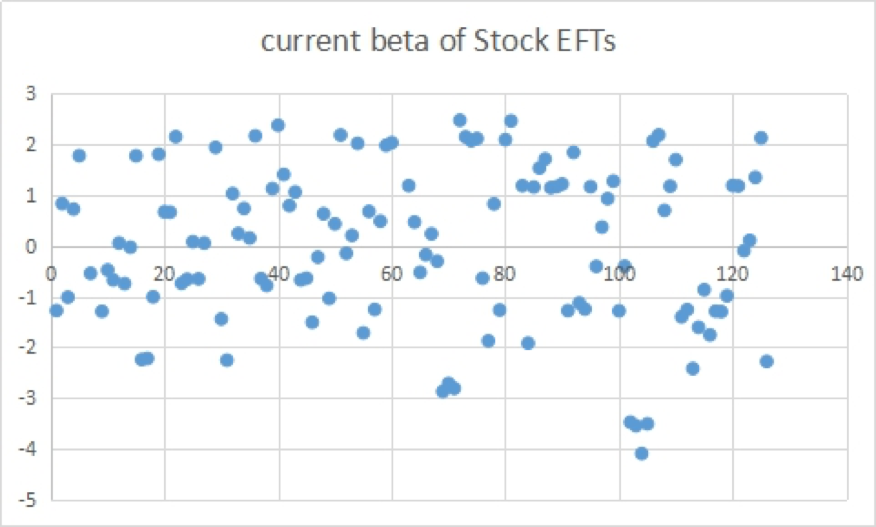
Among the 5 Bond ETFs, only one of them is traded in SZSE. That is Mid-TERM GOV BOND ETF (195526. SZ) with market size of $ 3.5 million. Others are Treasury Bond ETF (511010 .SH), Corporate Bond ETF (511210 .SH), Urban Construction Investment Bond ETF (511220. SH) and so on. The current market size of Bond ETF is $ 899 million and Urban Construction Investment Bond ETF (511220 .SH) is the biggest fund with $ 884 million in market size.



